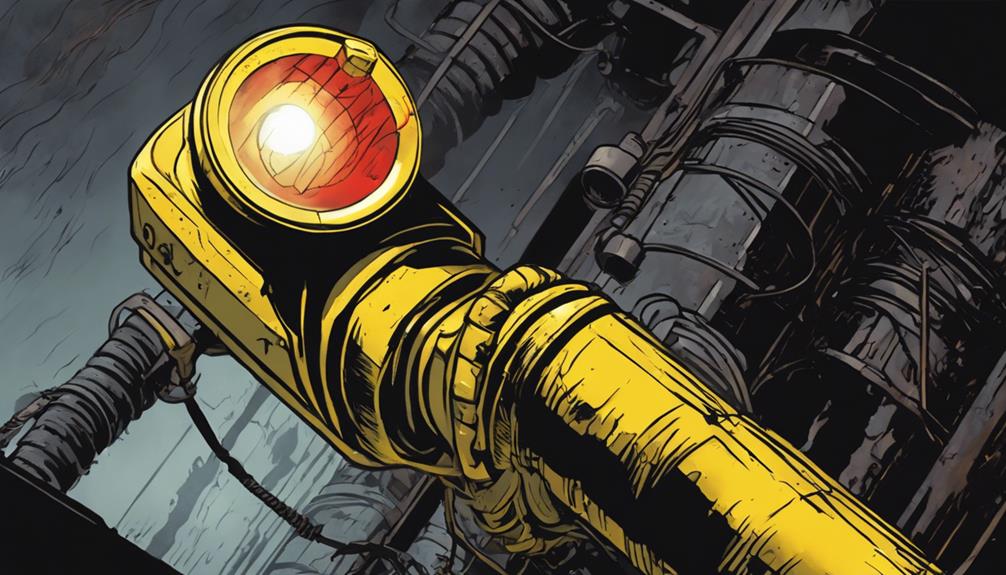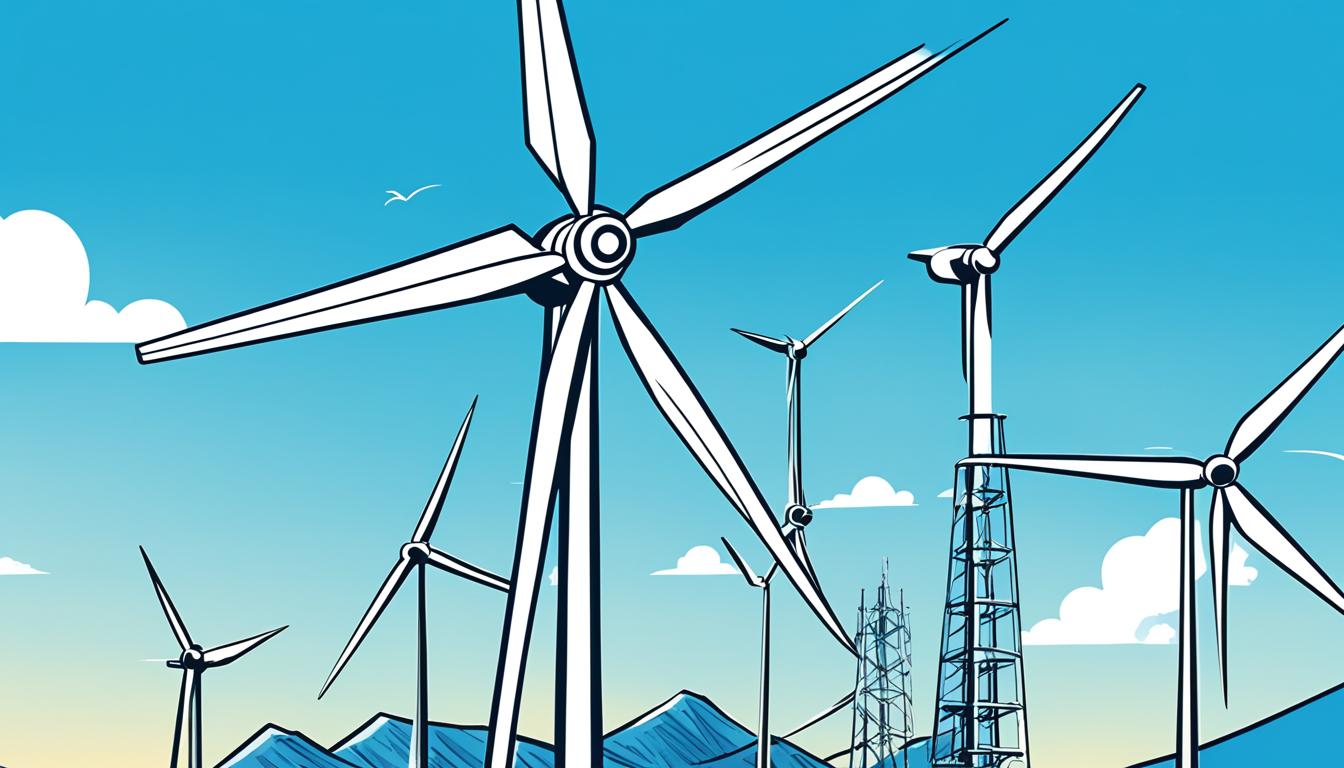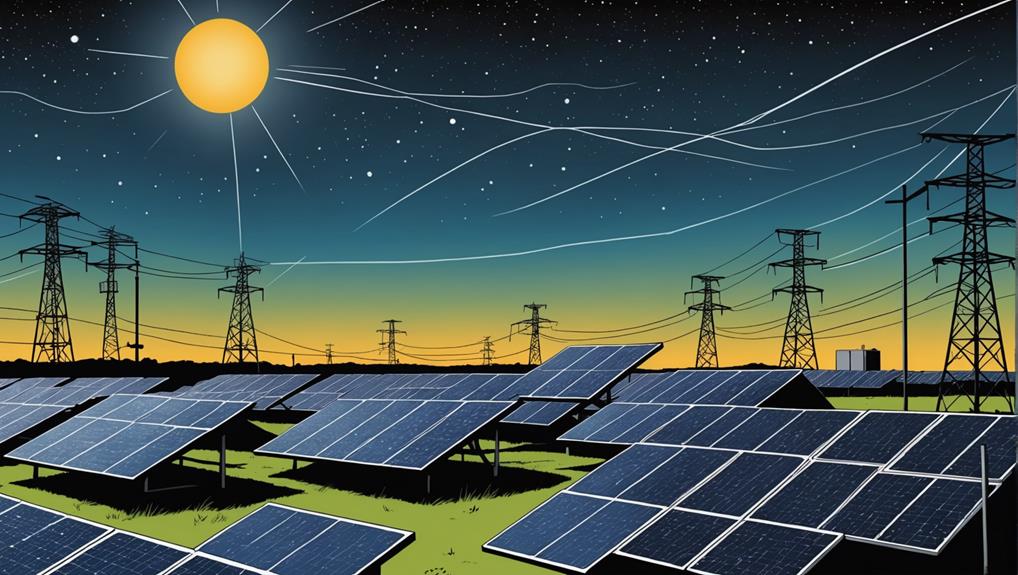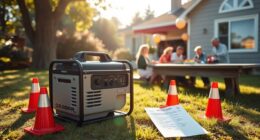You're likely unaware that a small gas leak in your home can cause devastating consequences, from fires and explosions to poisoning and even death. To stay safe, you need to detect and report gas leaks promptly. Recognize the signs of a gas leak, such as hissing sounds, odors, and dead plants. Installing natural gas detectors and regular maintenance checks can aid in early detection. If you suspect a gas leak, evacuate the area, avoid using electrical equipment, and contact professionals. By taking these essential steps, you can prevent disaster. Now, discover how to take your gas safety to the next level.
Key Takeaways
- Recognize signs of gas leaks, including hissing sounds, odors, and dead plants, to detect them early and prevent accidents.
- Install natural gas detectors to aid in leak identification and alert you to potential dangers.
- Regularly inspect gas appliances to identify potential issues and prevent leaks from occurring.
- Know how to respond safely to a gas leak, including evacuating the area and contacting professionals.
- Report suspected gas leaks immediately to emergency services, and let experts handle the detection and resolution.
Understanding Gas Leaks Dangers
Gas leaks pose a significant threat to your safety, putting you at risk of devastating consequences, including fires, explosions, and natural gas poisoning. These potential dangers of gas can't be taken lightly, as they can lead to serious health issues and even fatalities.
Carbon monoxide poisoning, a severe health threat associated with gas leaks, can cause respiratory problems and other health hazards. It's crucial to comprehend the signs of a gas leak, such as a hissing sound, unusual odors, or dead houseplants, to detect and address the issue promptly. Installing a natural gas detector can also help identify potential leaks.
If you suspect a gas leak, don't hesitate to call emergency services. Remember, it's always better to err on the side of caution when it comes to your safety. By taking the necessary safety measures, you can prevent accidents and safeguard your well-being.
Detecting Gas Leaks Early
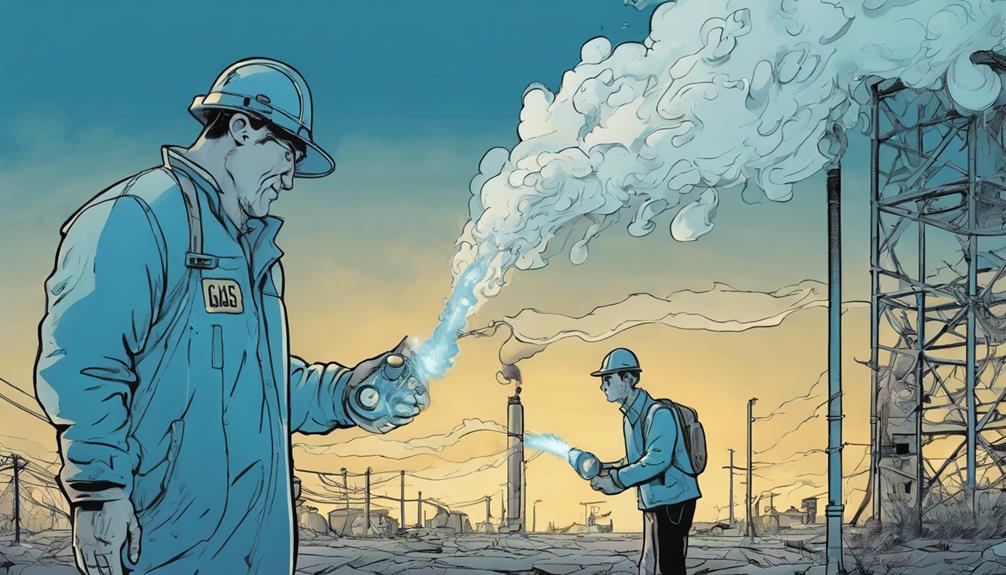
While understanding the dangers of gas leaks is necessary, recognizing the signs of a leak is equally important to prevent devastating consequences. You can do so by being aware of the distinct signs that indicate a potential gas leak.
To detect gas leaks early, it's vital to know what to look out for. One of the most recognizable signs is the strong, unpleasant odor of rotten eggs, which is added to natural gas for detection purposes. You should also be on the lookout for hissing sounds near gas lines or appliances, as these can indicate a potential gas leak that needs immediate attention.
Visual signs like dead vegetation or white clouds near gas pipes can also help you identify a gas leak in or around your home. Regular inspection of gas appliances for signs of leaks, such as rust, corrosion, or unusual hissing sounds, is necessary for early detection and prevention of gas leaks.
Preventing Gas Leaks Measures
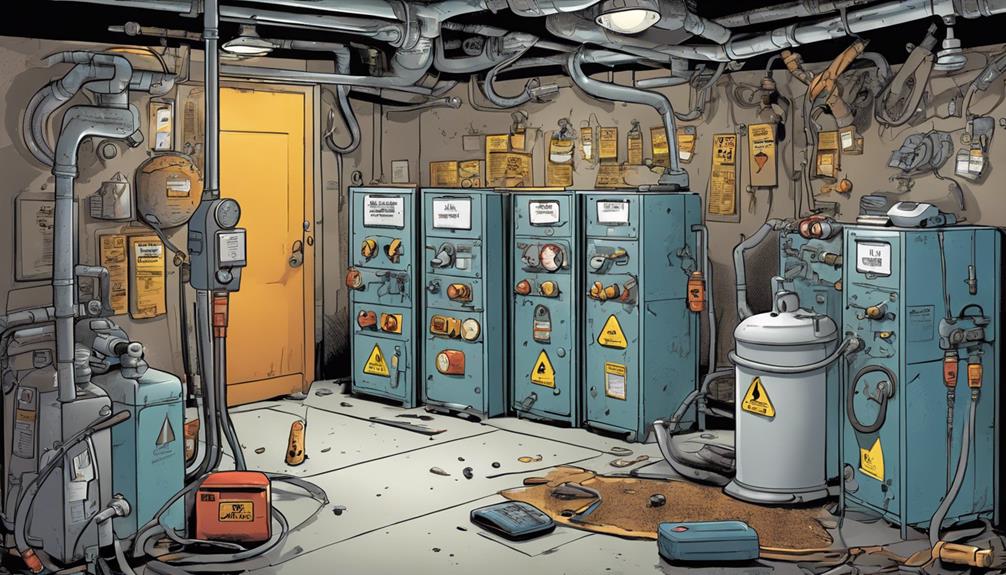
Taking proactive steps to prevent gas leaks is essential. You can start by maintaining your gas appliances regularly, such as scheduling annual inspections, to greatly lessen the risk of a leak occurring.
Regular maintenance helps you avoid gas leaks by identifying potential signs of wear and tear. Additionally, install gas detectors, like carbon monoxide and natural gas detectors, to detect leaks early.
Ensure proper ventilation in areas with gas appliances to decrease the risk of gas accumulation. Educate yourself and other household members on gas safety practices and emergency procedures, so you're trained to handle any situation.
Following manufacturers' guidelines for maintenance and replacement of gas appliances can also help prevent leaks. By taking these measures, you'll significantly diminish the risk of a gas leak and create a safer environment.
Responding to Gas Leaks Safely
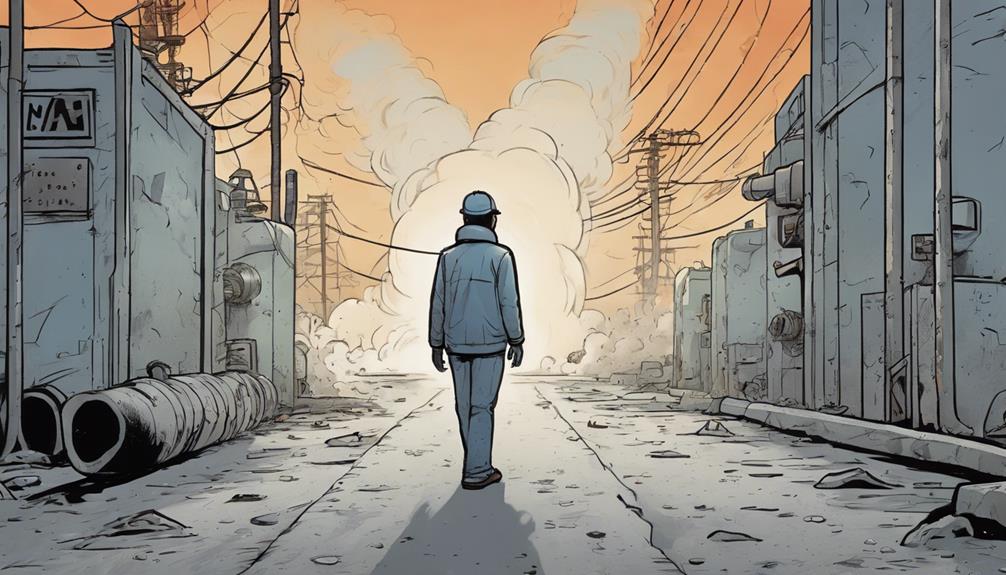
When you detect a gas leak, your top priority is to evacuate the area immediately to reduce the risk of fire or explosion. Don't delay – get out of the premises right away and take everyone with you. This is an important step in natural gas safety, as it prevents potential disasters.
Once you're safely outside, avoid using any electrical equipment, light switches, or open flames near the suspected gas leak to prevent potential sparks.
Next, ventilate the area by opening doors and windows to allow the gas to disperse safely while you wait for professional assistance. It's vital to take immediate action when you detect natural gas leaks, as signs of a gas leak can be subtle.
Refrain from using phones or electronic devices near the gas leak area, as they can potentially ignite the gas and worsen the situation. Instead, contact the gas company or emergency services to report the leak and seek professional help. Don't attempt to locate the gas leak yourself; let the experts handle it.
Maintaining Gas Appliances Regularly
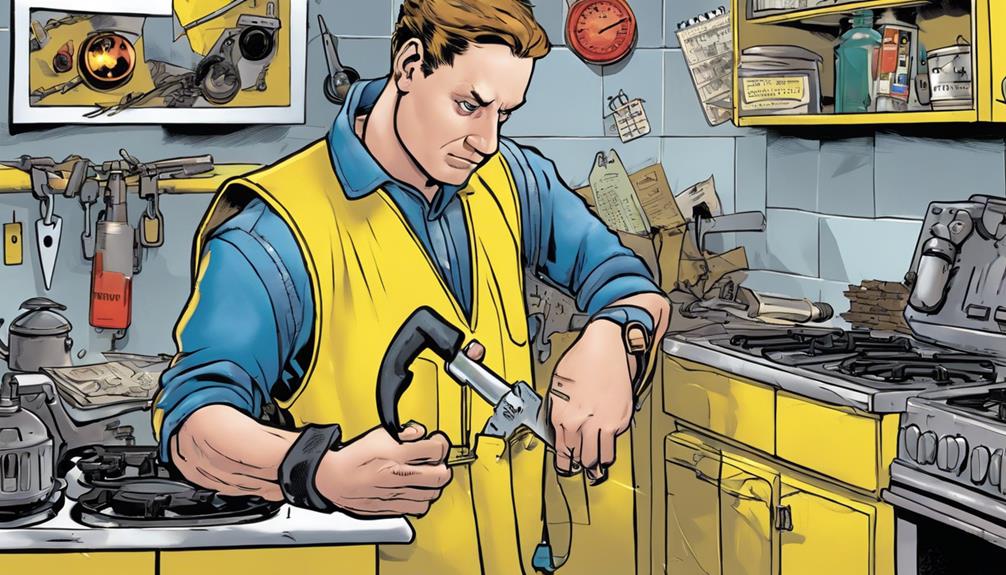
When you maintain your gas appliances regularly, you're taking an important step in preventing gas leaks and ensuring your safety.
By scheduling routine checkups and following a maintenance plan, you'll be able to identify and address potential issues before they become major problems.
Now, let's explore the importance of gas appliance checkups, the significance of scheduled maintenance, and the essentials of proper ventilation.
Gas Appliance Checkups
Every year or two, you should schedule a professional checkup for your gas appliances to make certain they're running safely and efficiently. Regular maintenance checkups by certified technicians can prevent gas leaks in your appliances.
During these checkups, they'll inspect your gas appliances annually or biennially to confirm they're operating safely and efficiently. They'll also guarantee proper ventilation and clean components, which reduces the risk of gas leaks.
Certified professionals can identify potential issues and address them promptly during appliance checkups. By following manufacturers' guidelines for maintenance and replacement of gas appliances, you'll be taking an important step towards safety.
These checkups are vital to prevent gas leaks, which can be hazardous to your health and safety. Don't wait until it's too late; schedule your gas appliance checkup today. Remember, it's always better to be safe than sorry.
Scheduled Maintenance Importance
By incorporating regular upkeep into your routine, you can greatly reduce the risk of gas leaks and appliance malfunctions, guaranteeing your home remains a safe and comfortable haven.
Scheduled maintenance is essential to prevent gas leaks and ensure the efficient operation of your gas appliances. Certified technicians will inspect your appliances, checking components like burners, valves, and connections to reduce the risk of gas leaks.
Annual inspections, or those conducted as per manufacturers' recommendations, are necessary for best safety. By staying on top of maintenance, you'll not only prevent gas leaks but also extend the lifespan of your appliances.
Don't wait until it's too late; schedule professional inspections to guarantee your gas appliances are running safely and efficiently. Remember, regular upkeep is key to preventing gas leaks and maintaining a safe home.
Proper Ventilation Essentials
You can further safeguard your home from gas leaks by maintaining proper ventilation around your gas appliances, a critical aspect of regular maintenance. This allows your appliances to function efficiently and safely, minimizing the risk of gas buildup and leaks.
Adequate airflow around your gas appliances prevents the accumulation of combustible gases, maintaining a safe living environment. It's essential to confirm that ventilation ducts are clear and unobstructed, as blocked ducts can lead to gas leaks.
Staying Informed About Gas Safety
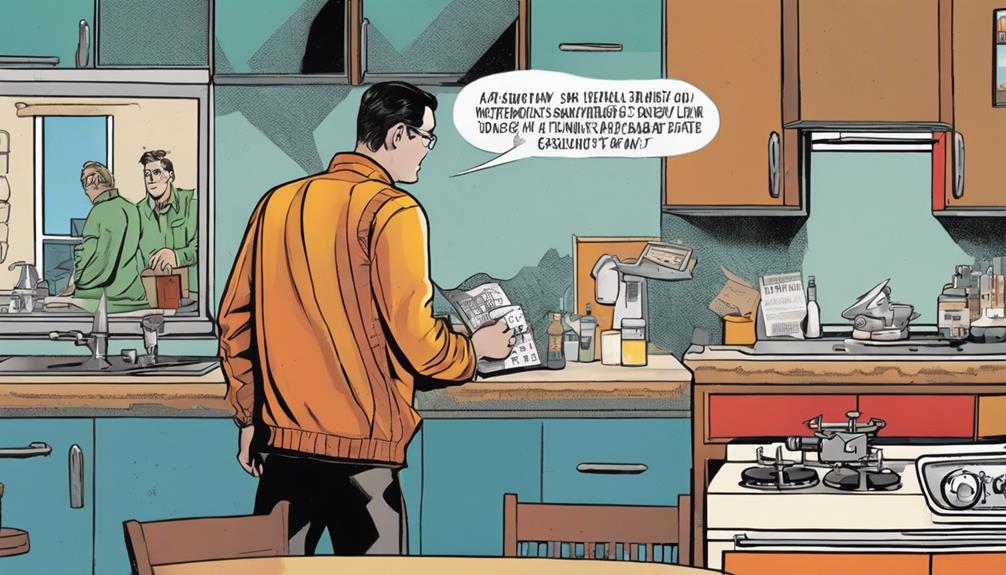
Informed households are better equipped to detect and respond to gas leaks, thanks to their knowledge of the warning signs and safety protocols. By staying informed, you can identify potential gas leaks early on and take prompt action to prevent accidents. Furthermore, informed households can also make use of advanced technologies such as wind turbine vertikal technology to take their safety precautions to the next level. By integrating these advanced systems into their homes, they can further minimize the risk of gas leaks and ensure the safety of their loved ones. Overall, staying informed and embracing new safety technologies can go a long way in ensuring a secure and protected living environment.
Here are four essential gas safety practices to keep in mind:
- Recognize the warning signs: Familiarize yourself with the smell of rotten eggs or hissing sounds near gas lines, which can indicate a gas leak.
- Install safety detectors: Make sure you have natural gas detectors and carbon monoxide alarms installed in your home to enhance early detection.
- Stay updated on reporting: Know how to report a gas leak promptly to the gas company or emergency services in case of an emergency.
- Educate yourself and others: Regularly educate yourself and your household members on gas safety practices to contribute to a safer living environment.
Frequently Asked Questions
Why Is It Important to Check for Gas Leaks?
You need to check for gas leaks because they can lead to fires, explosions, and health hazards, putting you and your household at risk, and early detection can prevent these dangerous situations from occurring.
What Are the Safety Measures for a Gas Leak?
You're lucky to still be breathing, considering you're dealing with a gas leak! Now, get out of there immediately and call the gas company or emergency services; don't use electrical appliances, and let pros handle it.
What Procedure Must Be Followed When a Gas Leak Has Been Detected?
When you detect a gas leak, you must evacuate the area immediately and contact the gas company or emergency services right away. You'll avoid using electrical appliances and wait for professionals to handle the situation.
What Should You Do to Detect a Gas Leak?
You should use your senses to detect a gas leak by looking for dead vegetation, listening for hissing sounds, and smelling for rotten eggs, and consider investing in a gas detector for added peace of mind.
Conclusion
As you stand vigilant against the silent threat of gas leaks, remember that a single spark can ignite a firestorm of disaster.
Don't let complacency be the catalyst for catastrophe – stay informed, maintain your appliances, and report any suspicions to authorities.
By being proactive, you'll be the hero who saves the day, and your loved ones, from the clutches of gas leaks.
